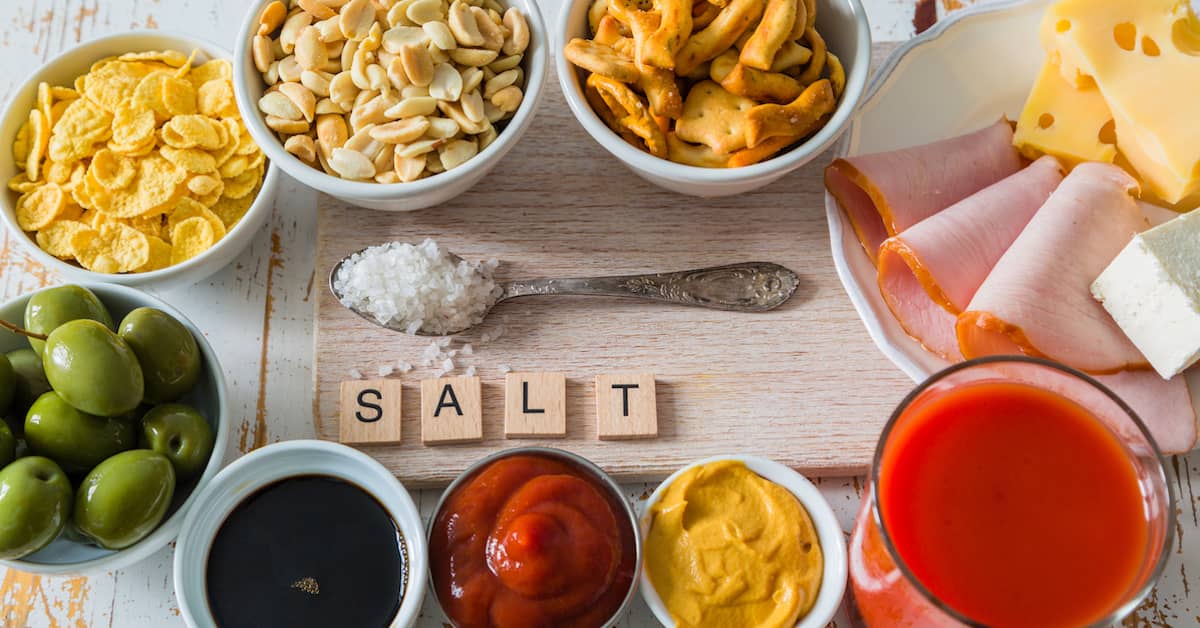
But why is processed food so bad for you? A new study has found one answer…
Processed food is filled with preservatives, additives, artificial colors and flavors, and lots and lots of salt. The official U.S. nutritional guidelines are to consume fewer than 2,300 milligrams (mg) of sodium each day. But actual consumption is 50 percent higher, due almost entirely to processed food.
Hidden Sodium is Hindering Your Memory
While salt (sodium chloride), used either in cooking or added at the table, comes to mind when considering sodium intake, only a small portion comes from these sources. Today, sodium intake comes mainly from processed and restaurant foods.For instance, a single cheeseburger from a fast-food restaurant can have between 710 mg and 1,690 mg of sodium. That’s a flame-grilled whopper of an amount.
Excess sodium puts you at risk for high blood pressure, which in turn increases the risk of heart disease and stroke. What’s more, research shows that consuming a high sodium diet can also increase the risk of cognitive decline.
Higher sodium intake was linked with cognitive impairment in an Irish population, but among Americans the connection was more complicated. In one study, postmenopausal American women developed impaired cognition with a lower intake of potassium, while another study showed higher dietary potassium increases the risk of cognitive impairment.
What does potassium have to do with it?
While studies exploring the relationship between dietary sodium and cognitive function among the elderly have been increasing in the past decade, they’ve come to different conclusions. And potassium turned out to be a key factor in the study results. To help bring some clarity on this issue scientists from China conducted a study on their own population. Like Americans, the Chinese consume a lot of sodium.
High Sodium, Low Potassium Dampens Memory
The researchers enrolled 4,213 men and women aged 50 and above. Each was asked to recall everything eaten over three consecutive days. Researchers measured cognitive function through objective tests as well as asking participants about their memories.After twelve months the research team found a high intake of sodium - greater than 5,593.2 mg per day - and an intake of nearly four times as much sodium as potassium, increased the risk of memory impairment.
Conversely, levels of potassium greater than 1,653.3 mg per day were associated with a higher cognitive score. In fact, the average cognitive test score increased by one point when 1,000 mg/day of sodium was replaced with an equal intake of potassium.
Senior author Ai Zhao explained, saying, “Based on our findings, it is reasonable to suggest that decreasing sodium intake, and properly increasing potassium intake, is beneficial to cognitive function.
“Given our results, and the nutritional situation of the Chinese, it will be important for future studies to focus on determining the optimal ratio of dietary sodium and potassium in the elderly.”
Reduce Salt, Increase Potassium Intake
According to the American Heart Association (AHA) the recommended potassium intake for an average adult is 4,700 milligrams (mg) per day. However, only three percent of adults in the United States meet that standard. And this could explain the epidemic of high blood pressure and heart disease in this country. It also might explain the growing numbers of seniors suffering from memory loss.While this most recent study was meant to bring some clarity to the relationship between sodium, potassium and memory loss, the results aren’t the end of the conversation.
It’s important to note that levels of sodium linked to cognitive decline in this study were extremely high and the sodium to potassium ratio was also excessive.
Although this study does not end the debate, it’s a useful reminder to steer clear of ultra-processed foods which are high in sodium. What’s more, the results put the emphasis on consuming more rich sources of potassium such as leafy greens, fruit, beans, nuts, dairy foods, and winter squash—which can benefit not just your memory, but your overall health as you age.
